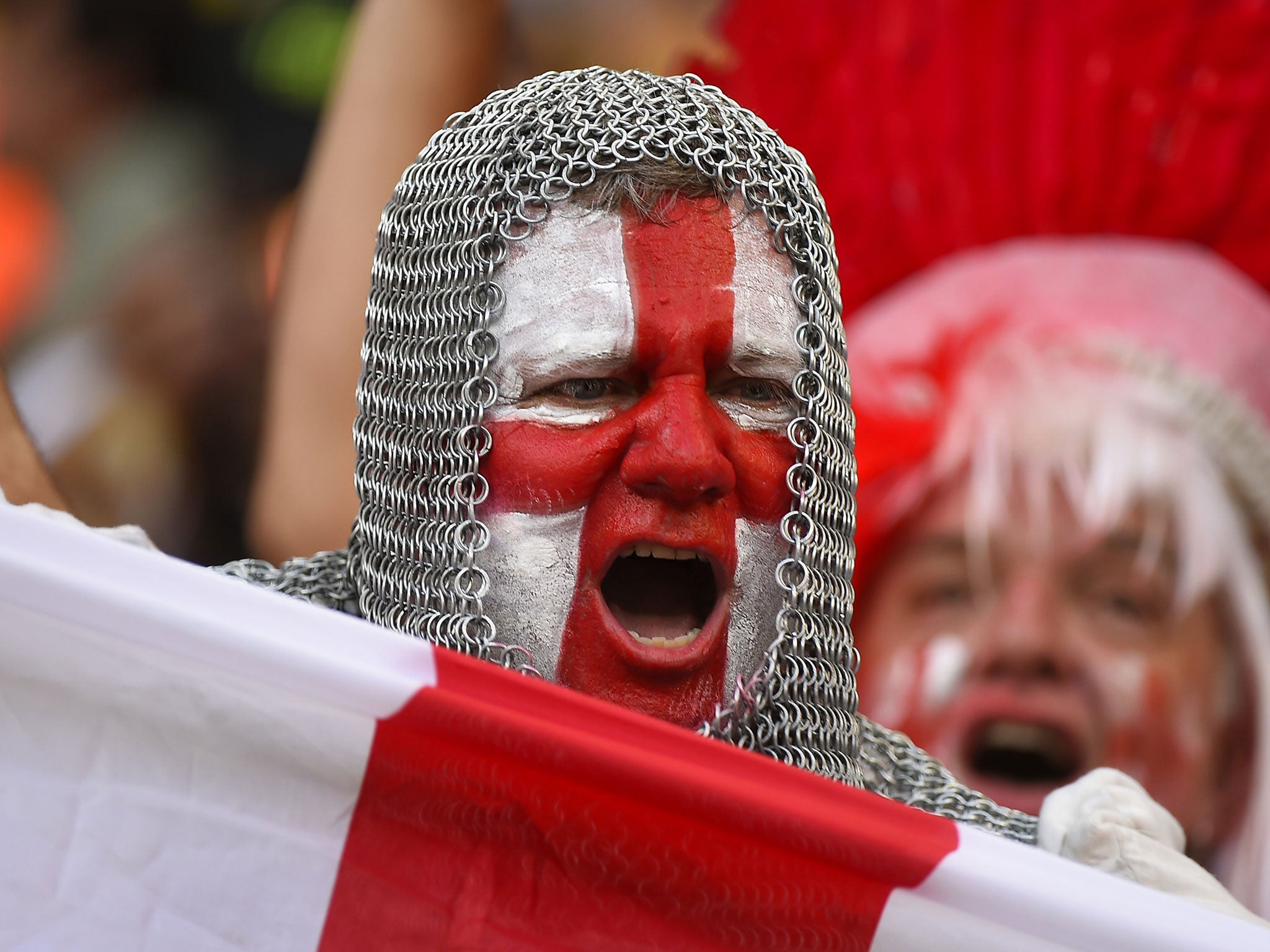The rise in nationalism after Brexit is nothing new – the proud Englishman has always been patriotic
Brexit exploited an intractable sense of identity, an identity which gives value and belonging, including to those who have little else

Your support helps us to tell the story
From reproductive rights to climate change to Big Tech, The Independent is on the ground when the story is developing. Whether it's investigating the financials of Elon Musk's pro-Trump PAC or producing our latest documentary, 'The A Word', which shines a light on the American women fighting for reproductive rights, we know how important it is to parse out the facts from the messaging.
At such a critical moment in US history, we need reporters on the ground. Your donation allows us to keep sending journalists to speak to both sides of the story.
The Independent is trusted by Americans across the entire political spectrum. And unlike many other quality news outlets, we choose not to lock Americans out of our reporting and analysis with paywalls. We believe quality journalism should be available to everyone, paid for by those who can afford it.
Your support makes all the difference.The rise of English nationalism to the mainstream of British politics in the aftermath of Brexit has surprised many commentators. But despite the unease it causes parts of the middle class, much of England has always been strongly patriotic. It can be observed at almost every football match and many working class pubs. It is often conflated with racism, but it is not the same thing.
It is also not just restricted to the working class. I vividly remember discussing identity with European friends at university, probably around 2014, before the EU referendum became a reality. The French and Italians – who identified as European – expressed shock after I and other UK friends said we felt English rather than European. Though events since then have changed many people's perspectives, I don’t think it was particularly unusual even for a fairly liberal Englishman, and a Remain voter, to reject labelling himself as European.
Remember when Emily Thornberry was forced to resign from the Shadow Cabinet over a tweet mocking a home with a white van and displaying the flag of St George, while our campaigning the Rochester and Strood by-election? Nothing captured more perfectly the unease with which middle class liberals handle the patriotism of the working class.
Granted, the flag has associations with the far right, being waved at every English Defence League and Britain First rally. Yet these nasty groups only number in the thousands, not millions who voted for Brexit (the same goes for the worrying rise in hate crime since the referendum).
But such an out-of-touch move (or simple stupidity) from Thornberry also vindicated the accusation that the Labour party was disconnected from its core vote.
Unlike other parties who were fearful of what they would unleash, Ukip were not afraid to stir up common patriotic feeling to get what they wanted. In calculated fashion, the Brexit boys politicised it and nationalism became a relevant political force. Patriotism became a whip with which to gleefully beat the Westminster elite.
Part of why it has been so powerful – in addition to the other factors which contributed to Brexit, such as inequality and a general sense of economic hopelessness in many parts of the country – is because of its emotional appeal. As Ukip donor Arron Banks admitted, "facts don't work". It plays upon an existing and strong sense of national pride.
While much of the liberal centre looked on in horror at the referendum campaign, others felt genuinely excited and galvanised. Were they really all salivating at the prospect of a "whiter" Britain? Or were they, more likely, hopeful that change might come to their towns after years of being ignored by central government?
This emotional appeal is also why nationalism is so problematic: Brexit exploited an intractable sense of identity, an identity which gives value and belonging, including to those who have little else. For the average person, things haven’t yet changed in the aftermath of the vote, and the Leave lies can hold on for the time being.
Brexit was built on emotion, not reason, so it has given way to an atmosphere where reasonable debate is becoming more and more difficult, endangering us all. It’s even allowed a former leader of the Opposition to threaten war with Spain.
It will take time for the shortcomings and disappointments of Brexit to play out. And, economically, the areas that voted most strongly in favour of Brexit are also those most likely to suffer from it. Maybe then people will be less inclined to listen to emotion, but it's remember that those emotions have been with us for generations. Whatever the result of Brexit, they won't dissipate overnight.
Join our commenting forum
Join thought-provoking conversations, follow other Independent readers and see their replies
Comments